ASPR’s Biomedical Advanced Research and Development Authority (BARDA) will provide up to $100M over 10 years to the MRIGlobal Team to conduct advanced development for a qPCR-based quantitative biodosimetry assay (ARad Biodosimetry Test) and validation testing in support of a 510(k) submission to the FDA.
Kansas City, Mo. – MRIGlobal, with key partners Thermo Fisher Scientific and Arizona State University (ASU), will lead a molecular biodosimetry development program for the Biomedical Advanced Research and Development Authority (BARDA), a division of the Office of the Assistant Secretary for Preparedness Response within the U.S. Department of Health and Human Services.. The contract is worth more than $21.3 million over the first four years and three months could be extended for up to $100 million over 10 years.
The ARad Biodosimetry Test is a diagnostic test designed to determine absorbed doses of ionizing radiation and inform the use of medical countermeasures to administer medical care following a radiation or nuclear incident. The ARad Biodosimetry Test was developed by researchers at ASU’s Biodesign Institute and Thermo Fisher Scientific and is designed to be run in a clinical health care laboratory that produces a quantitative estimate of the actual absorbed dose a person received.
MRIGlobal, with partners Thermo Fisher Scientific and ASU, will clinically test and validate the ARad Biodosimetry Test for FDA clearance. The FDA-cleared test will be manufactured by Thermo Fisher Scientific and stockpiled for available testing.
Using the ARad Biodosimetry Test, blood samples will be analyzed for up to seven days post exposure to measure how genes respond to different amounts of radiation, and the test is expected to generate results in approximately eight hours. This test provides rapid response capabilities and high throughput sample analysis with the potential to process 400,000 or more tests a week.
“This work is critical to saving lives in the event of a nuclear or radiological emergency,” said Thomas M. Sack, Ph.D., President and Chief Executive Officer, MRIGlobal, “Current tests only detect radiation on the skin, but there are no biodosimetry tests approved to measure the amount of radiation absorbed into the body.”
“This technology contributes a critical capability to the nation’s preparedness for a major radiation-related emergency,” said Joshua LaBaer, M.D., Ph.D., Interim Executive Director of ASU’s Biodesign Institute and Director of the Biodesign Virginia G. Piper Center for Personalized Diagnostics. “Rapid and precise tracking of gene expression resulting from radiation exposure will allow clinicians to fast-track patients based on absorbed radiation dose, ensuring the best medical outcomes in the event of a catastrophic incident.”
About Thermo Fisher Scientific
Thermo Fisher Scientific Inc. is the world leader in serving science, with revenues of $17 billion and more than 50,000 employees in 50 countries. Our mission is to enable our customers to make the world healthier, cleaner and safer. We help our customers accelerate life sciences research, solve complex analytical challenges, improve patient diagnostics and increase laboratory productivity. Through our premier brands – Thermo Scientific, Applied Biosystems, Invitrogen, Fisher Scientific and Unity Lab Services – we offer an unmatched combination of innovative technologies, purchasing convenience and comprehensive support. For more information, visit www.thermofisher.com.
About Arizona State University (ASU)
ASU and its Biodesign Institute address today’s critical global challenges in health care, sustainability and security by developing solutions inspired from natural systems and translating those solutions into commercially viable products and clinical practices. With leaders in the field of biomarker development, The Biodesign Institute has developed the ARad gene biomarkers, dose estimation software, work flow automation and quality controls using Thermo Fisher Scientific instruments and reagents while working with Thermo Fisher Scientific to translate this technology to commercial product. ASU will assist with tech transfer, training and documentation, analytical validation and provide technical support.
